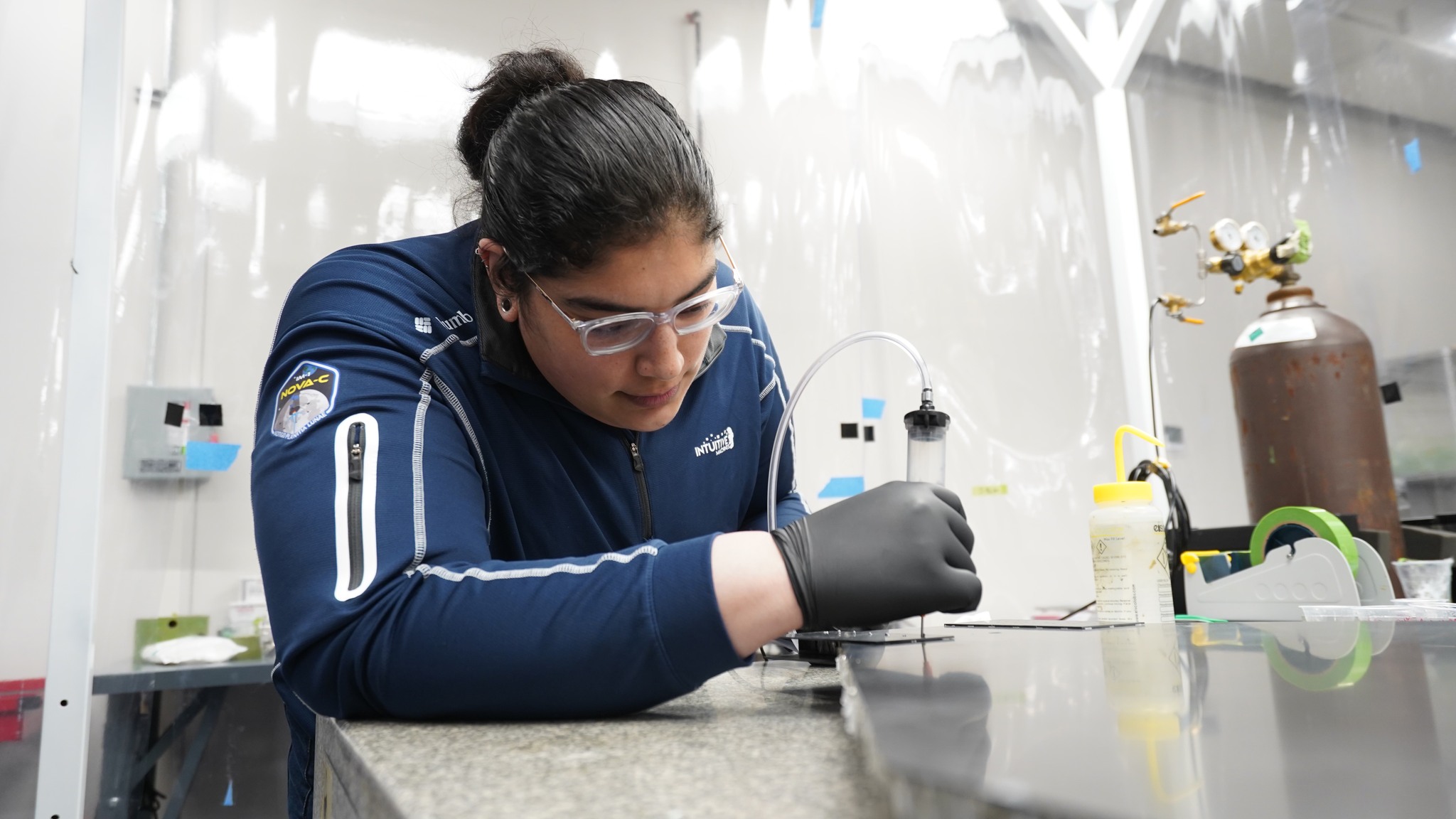Building Tomorrow’s Workforce: San Jacinto College and Houston Spaceport Creating Pathways to Aerospace Careers
Published Oct 10, 2024 by Hailea Schultz
Turning a challenge into an opportunity is something Houston—and many other cities—know well when competing to attract new businesses. In its early days, the Houston Spaceport faced a major hurdle: a shortage of skilled aerospace technicians in the region. However, rather than seeing this as a setback, the spaceport transformed it into an opportunity to strengthen its position as a leader in the aerospace industry.
The Need for Collaboration
Workforce supports the growth of any industry. Despite Houston’s deep-rooted history in the industry and the spaceport’s strategic location near NASA's Johnson Space Center, it lost a major tenant to a competing state. According to Houston Airport System Director Jim Szczesniak, the setback underscored the critical need for a robust workforce development program that could retain and attract aerospace companies.
Determined to never lose another company for the same reason, the spaceport turned to San Jacinto College (SJC), a recognized leader in workforce training. Together, they saw an opportunity to solve Houston’s workforce gap and lay the foundation for something much bigger — a pipeline of skilled aerospace talent that would not just serve one company, but an entire industry.
In 2020, their shared vision became a reality with the launch of the EDGE Center, a cutting-edge educational facility specifically designed to train the next generation of aerospace technicians.
“By fostering a collaborative environment, we create a unique value proposition for companies seeking to establish or expand their operations in the region,” Szczesniak said. “Our ability to connect industry leaders with skilled talent and supportive infrastructure provides a competitive advantage that is unmatched. This collaborative approach accelerates innovation, reduces time-to-market, and ultimately strengthens Houston's position as a premier aerospace hub.”
Developing Curriculum for the Industry
Sarah Janes, associate vice chancellor of continuing & professional development at the San Jacinto College District, said SJC conducted visits to spaceports and aerospace companies worldwide to ensure the EDGE Center’s curriculum aligned with industry needs. This allowed them to gather valuable insights into the challenges and skill gaps in the field.
An advisory committee made up of local industry leaders was also established to ensure that the programs remained relevant and responsive to regional demands. SJC hosts bi-monthly advisory meetings to keep the curriculum flexible and forward-thinking, allowing the EDGE Center to meet the current needs of aerospace companies and anticipate future industry shifts.
“Whenever a new company comes to this region, they are always interested in the workforce that is already here to support them, as well as how more people can be trained for the skills that they will need for their company," Janes said. “Working with economic development partners as well as entities such as the Houston Spaceport, provides those new possibilities with the reasons that make this area their first choice for a place to take root.”
Collaboration with Industry Leaders
With phase one completed in 2019 and the arrival of anchor tenants like Axiom Space and Intuitive Machines set the stage for deeper industry collaboration. The companies partnered with SJC to develop industry-specific curricula, mentor aspiring technicians, lead lab courses, offer internships and hire students for high-profile projects.
Intuitive Machines has played an instrumental role in providing hands-on training and creating a direct pathway for students to enter the aerospace industry. According to Janes, many EDGE Center students worked on the company’s Lunar Lander, with 18 now hired full-time and set to work on future lunar missions.
“Between the lander's engine, carbon composites, software, and electronics required to build a Nova-C lunar lander, it takes an incredible amount of touch labor to get to the launch pad,” Intuitive Machines CEO Steve Altemus said in an SJC article. “We work closely with San Jacinto College to foster certification courses for technicians to complete training, intern, and full-time hire into our lunar program.”
Through strong industry collaboration and the focused efforts of the spaceport and SJC, the EDGE Center has made remarkable strides in fulfilling its mission. One example is Cyrus Shy, one of the first students enrolled in the EDGE Center’s composites program. After getting a job with Intuitive Machines, Shy was later hired by Windhover Labs, which was recently tasked with building scale test versions of Venus Aerospace’s hypersonic aircraft.
Another graduate, Charlotte Newell, transitioned from being a hairdresser to an electrical technician through the EDGE Center’s Basic Electrical and Electronic program. After completing the program, she was hired by Collins Aerospace and later Intuitive Machines. Newell is now pursuing an engineering degree at Embry-Riddle Aeronautical University.
Future Growth and Expansion
The Aerospace Institute, an initiative aimed at expanding connections between higher education institutions and the aerospace industry, is a key component of the spaceport’s second phase of development. Although still in its early stages, the project is progressing alongside plans to expand the EDGE Center. According to Janes, over $1 million in new equipment will enhance existing programs and add courses that reflect industry demands. The expansion will allow the EDGE Center to continue serving as a critical pipeline of talent for the region’s growing aerospace industry.
Learn more about Houston’s growing aerospace industry and the Partnership’s UpSkill Houston initiative.
 The Houston Report
The Houston Report




















